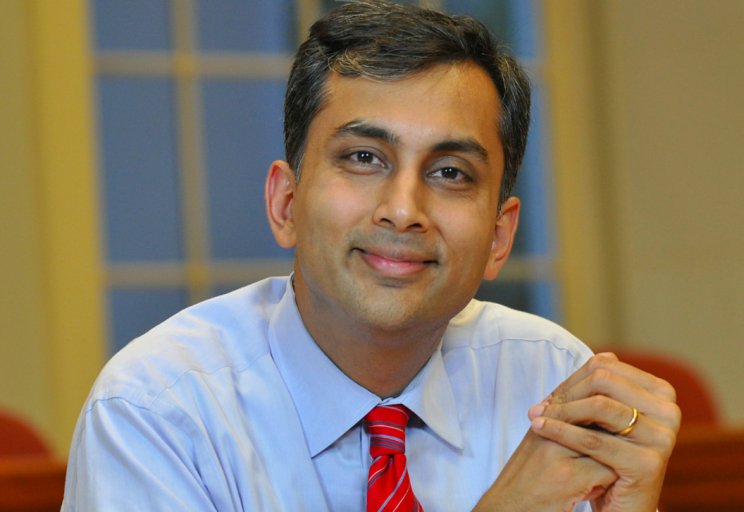Harvard professor argues for restoring 'humanity' in finance
The terms “hedge fund manager” and “Wall Street executive” conjure up negative images for many, particularly since the 2008 financial crisis.
Some critics say dealing in finance is inherently unethical, and even those who work in finance often compartmentalize between their personal and professional lives. Meanwhile, efforts to increase regulation have been accompanied by underlying anger toward the industry.
In a new book, “The Wisdom of Finance: Discovering Humanity in the World of Risk and Return,” Harvard Business School professor Mihir Desai aims to remedy that image, as he thinks the negativity has been detrimental.
“I think finance is broken in many ways. People don’t respect it,” Desai said. “There are a lot of things in finance that don’t deserve respect, but finance is hugely important. It’s hugely important to us as individuals when we borrow, it’s hugely important to the economy. So we have to fix it.”
The understanding of the “Wall Street versus Main Street” relationship as antagonistic has been widely embraced. But with finance everywhere—from our retirement assets to investments in housing and education and beyond—opening up the idea of finance is key, Desai said.
Parts of finance are doing more value extraction than creation, like areas of asset management and banking, Desai argued. But this isn’t true across the board.
“The regulations that have been created to help solve the problem can actually make it considerably worse,” he said.

Desai turns to the underlying ideas of finance, which he explains are based in humanity. For example, Desai said insurance can help us confront disorder in the world.
In the Flitcraft Parable of “The Maltese Falcon,” Desai explains, a man who escapes his life settles back into the same pattern he was used to in his new home.
“The story is really about how there is chaos everywhere and how to make sense of it—the answer is patterns and the repeated activity,” Desai said. “The central problem in life is ‘How do I make sense of the chaos?’ The answer is given by insurance which is you experience the world through a sample and you get used to those patterns.”
Desai also said value creation can help us lead a meaningful life.
In the “Parable of Talents” from the book of Matthew, three servants were given different values of “talents,” which were monetary units. Desai explained that the servant who didn’t invest his talent and make it into more was banished from the kingdom.
“The story is the same story that comes out of any value creation story,” Desai said. “You are stewards of capital. You actually have to create capital with it, that involves taking risks, that involves giving back more than you were giving.”
Desai added that this parable, along with the work of John Milton and Samuel Johnson, shows that finance’s intuition for value creation corresponds to a stewardship attitude to the world.

Meanwhile, bankruptcy helps individuals understand and react to failure, Desai said. And literature like Mr. Steven’s dilemma in Kazuo Ishiguro’s “The Remains of the Day” demonstrate how debt overhang frames the most important decisions individuals face.
“The rejection of markets and finance as a source of wisdom is deeply unhelpful,” Desai wrote. “By suggesting that finance has no positive values embedded in it, we encourage [finance professionals] to live a professional life without values and to separate their personal, moral selves from that work.”
Viewing finance through the prism of literature and history will help restore humanity to finance, Desai said.
Nicole Sinclair is markets correspondent at Yahoo Finance
Please also see:
Bob Iger tells us about Disney’s most ambitious project in years
Cooperman: There are 4 things to worry about when you look at the stock market
Warren: Senators are spending 110% of their time working through what Trump has done
Senator Warren: The CFPB reminds us that government can actually work

